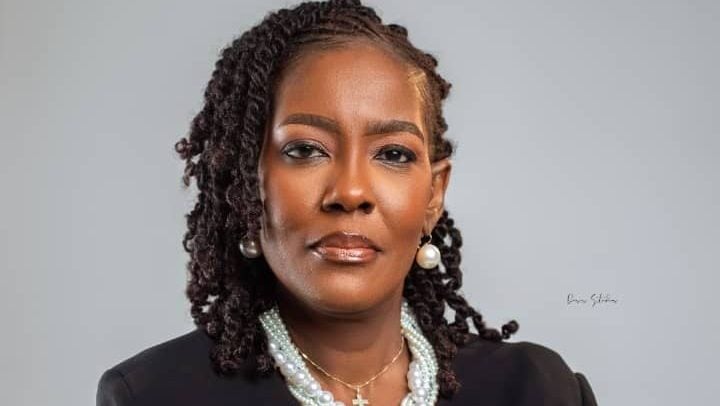The Ghana Bar Association (GBA) President, Mrs. Efua Ghartey, robustly defended the association against accusations of inconsistency and selectivity in its advocacy, particularly concerning the ongoing process to remove Chief Justice Gertrude Torkornoo. Speaking at the GBA’s 2025 annual conference in Wa, she addressed criticisms leveled by Attorney-General Dr. Dominic A. Ayine, who questioned the Bar’s consistency outside the courtroom while acknowledging its historical role in supporting the Supreme Court’s interpretation and enforcement of the Constitution. Mrs. Ghartey countered by highlighting the GBA’s constitutional obligation to safeguard judicial independence and its unwavering commitment to this duty. She argued that the current proceedings against the Chief Justice are flawed due to the absence of comprehensive regulations governing Article 146 petitions, which creates potential for arbitrariness and unfairness.
Mrs. Ghartey emphasized the GBA’s concern over the lack of specific rules of procedure for removing a Chief Justice, a process outlined in Article 146 of the Constitution. She contended that this absence of clearly defined procedures, which should have been established prior to initiating the removal process, creates an environment ripe for potential abuse and undermines the principles of fairness and due process. The GBA President warned that this lack of clarity sets an unfortunate precedent that could jeopardize the integrity of the judicial system and should be a cause for concern for all Ghanaians. She stressed the importance of predefined rules and standards, arguing that their absence makes it difficult to ensure a just and equitable process.
The GBA President’s defense centered on the principle of judicial independence, a cornerstone of a functioning democracy. She argued that the current proceedings against the Chief Justice, lacking a clearly defined framework, threaten this fundamental principle. The absence of specific regulations governing Article 146 petitions creates a vulnerability within the system, potentially exposing it to political manipulation or other undue influences. This, she argued, undermines the integrity of the judiciary and erodes public trust in the institution responsible for upholding the rule of law. Mrs. Ghartey stressed that the Bar’s advocacy in this matter stems from its deep-seated commitment to preserving judicial independence and ensuring a fair and transparent process.
Mrs. Ghartey directly addressed the Attorney-General’s criticism regarding the GBA’s alleged inconsistency, arguing that the Bar’s concern stems from the unprecedented nature of the current situation. The lack of established procedures for removing a Chief Justice creates a unique challenge that demands careful scrutiny and robust advocacy. She underscored the distinction between the Bar’s role within the courtroom, where established rules and precedents guide proceedings, and its advocacy outside the courtroom, where it must often navigate complex and evolving situations. The GBA, she asserted, remains steadfast in its commitment to upholding the rule of law and ensuring a fair and just legal system, both inside and outside the courtroom.
Furthermore, Mrs. Ghartey emphasized the gravity of the situation, highlighting the potential repercussions of allowing the current proceedings to continue without proper regulations. The removal of a Chief Justice is a significant event with far-reaching implications for the entire judicial system. The absence of clear guidelines creates uncertainty and instability, potentially undermining public confidence in the judiciary’s impartiality and ability to dispense justice fairly. This, she argued, necessitates the GBA’s intervention to ensure that the process adheres to the principles of fairness, transparency, and due process. The Bar’s advocacy, she maintained, is not selective but rather a response to a specific and critical situation that demands immediate attention.
In conclusion, Mrs. Ghartey reiterated the GBA’s unwavering commitment to upholding the rule of law and safeguarding the integrity of the judiciary. She framed the Bar’s advocacy in the matter of the Chief Justice’s removal as a direct consequence of its constitutional mandate to protect judicial independence. The absence of clear procedures governing Article 146 petitions, she argued, creates a dangerous precedent that threatens the foundations of a just and equitable legal system. The GBA’s actions, she maintained, are not driven by inconsistency or selectivity, but by a deep commitment to ensuring that all legal processes adhere to the highest standards of fairness and transparency. The Bar’s intervention, she concluded, is essential to protect the independence of the judiciary and uphold the rule of law for all Ghanaians.


